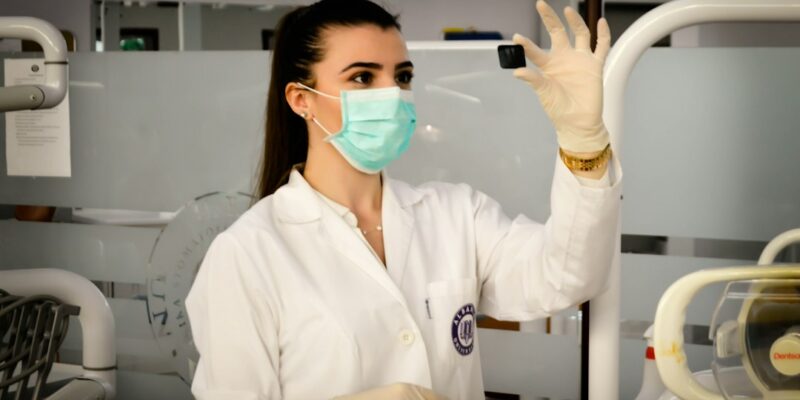
Protecting Your Child’s Health: The Importance of Preventive Screenings
Preventive health for children is of utmost importance in ensuring their overall well-being and setting them up for a healthy future. By focusing on early detection and prevention, parents and caregivers can play a crucial role in safeguarding their child’s health. Preventive health measures include regular screenings, vaccinations, dental check-ups, vision and hearing screenings, and mental health assessments. By prioritizing these preventive measures, parents can help identify any potential health issues early on and take appropriate action to address them.
Key Takeaways
- Preventive health is important for children to maintain good health and prevent future health problems.
- Preventive screenings for children can detect health issues early on and allow for timely treatment.
- Recommended preventive screenings for children include vaccinations, dental health screenings, vision and hearing screenings, and mental health screenings.
- Parents and caregivers play a crucial role in ensuring their child receives necessary preventive screenings and vaccinations.
- Protecting your child’s health through preventive measures can lead to a brighter future for them.
Understanding Preventive Health
Preventive health refers to the measures taken to prevent the onset or progression of diseases or conditions. It involves proactive steps to maintain good health and prevent the occurrence of illnesses. Preventive health focuses on early detection and intervention, as well as promoting healthy behaviors and lifestyles. By addressing potential health issues before they become severe, preventive health measures can significantly improve a child’s overall well-being.
The Importance of Preventive Screenings for Children
Preventive screenings are an essential component of preventive health for children. These screenings help identify any potential health issues early on, allowing for timely intervention and treatment. Regular screenings can detect conditions such as developmental delays, hearing or vision problems, dental issues, and mental health concerns. By addressing these issues early, parents and healthcare providers can work together to ensure that children receive the necessary support and treatment to thrive.
Early detection through preventive screenings also allows for more effective treatment options. For example, identifying developmental delays at an early age can lead to early intervention services that can significantly improve a child’s development and quality of life. Similarly, detecting dental issues early on can prevent more severe problems in the future and promote good oral hygiene habits from an early age.
Recommended Preventive Screenings for Children
| Screening | Age Range | Frequency |
|---|---|---|
| Vision | Birth to 5 years | Annually |
| Hearing | Birth to 18 years | Periodically |
| Blood Pressure | 3 years and up | Annually |
| Cholesterol | 9 to 11 years and 17 to 21 years | Once or twice |
| Lead | 6 months to 6 years | Periodically |
| Tuberculosis | At risk children | Periodically |
| Developmental | Birth to 3 years | Periodically |
| Autism | 18 to 24 months | Periodically |
| Depression | 12 to 18 years | Periodically |
There are several recommended preventive screenings for children that parents should be aware of. These screenings vary based on the child’s age and developmental stage. Some of the recommended screenings include:
– Developmental screenings: These screenings assess a child’s development in areas such as communication, motor skills, and social-emotional development. They are typically conducted at regular well-child visits.
– Vision and hearing screenings: These screenings help identify any vision or hearing problems that may affect a child’s learning and development. They are usually conducted at regular intervals, starting from infancy.
– Dental screenings and check-ups: Regular dental check-ups are crucial for maintaining good oral health. These check-ups can help identify any dental issues early on and promote proper oral hygiene habits.
– Mental health screenings: Mental health screenings assess a child’s emotional well-being and can help identify any mental health conditions such as anxiety or depression. These screenings are typically conducted during well-child visits or when concerns arise.
Vaccinations and Immunizations
Vaccinations and immunizations play a vital role in preventive health for children. They protect against various infectious diseases and help prevent the spread of these diseases within communities. Vaccinations stimulate the immune system to produce antibodies, which provide immunity against specific diseases.
Following the recommended vaccination schedule is crucial to ensure that children receive the necessary protection against preventable diseases. The vaccination schedule may vary based on factors such as age, health conditions, and previous immunizations. It is essential for parents to consult with their healthcare provider to ensure that their child receives all the recommended vaccinations.
Dental Health and Preventive Screenings
Dental health is an integral part of preventive health for children. Good oral hygiene habits from an early age can help prevent dental issues such as cavities, gum disease, and tooth decay. Regular dental check-ups are recommended to monitor oral health and address any potential issues.
During dental screenings, dentists can assess a child’s oral health, provide preventive treatments such as fluoride application or dental sealants, and educate parents and children about proper oral hygiene practices. By prioritizing dental health and preventive screenings, parents can help their children maintain healthy teeth and gums.
Vision and Hearing Screenings
Vision and hearing screenings are essential for identifying any potential problems that may affect a child’s learning and development. These screenings can detect issues such as nearsightedness, farsightedness, astigmatism, or hearing loss. Early detection of vision or hearing problems allows for timely intervention and appropriate treatment.
The recommended screening schedule for vision and hearing may vary based on the child’s age and risk factors. It is important for parents to consult with their healthcare provider or pediatrician to determine the appropriate timing and frequency of these screenings.
Mental Health Screenings for Children
Mental health screenings are an essential part of preventive health for children. They help identify any mental health conditions that may be affecting a child’s emotional well-being and overall functioning. Common mental health conditions in children include anxiety disorders, depression, attention-deficit/hyperactivity disorder (ADHD), and behavioral disorders.
Regular mental health screenings can help parents and healthcare providers identify any concerns early on and provide appropriate support and treatment. These screenings may be conducted during well-child visits or when concerns arise regarding a child’s emotional well-being.
The Role of Parents and Caregivers in Preventive Health
Parents and caregivers play a crucial role in promoting preventive health for children. By actively participating in their child’s healthcare, parents can ensure that preventive measures are prioritized. Some tips for promoting preventive health at home include:
– Schedule regular well-child visits: Regular visits to the pediatrician or healthcare provider allow for comprehensive assessments of a child’s health and development.
– Follow recommended vaccination schedules: Ensuring that children receive all the recommended vaccinations helps protect them against preventable diseases.
– Encourage healthy behaviors: Promote healthy eating habits, regular physical activity, good oral hygiene practices, and adequate sleep to support overall well-being.
– Stay informed: Stay updated on the latest recommendations for preventive screenings and health practices for children.
Protecting Your Child’s Health for a Brighter Future
Prioritizing preventive health for children is crucial in ensuring their overall well-being and setting them up for a healthy future. By understanding the importance of preventive screenings, vaccinations, dental health, vision and hearing screenings, and mental health assessments, parents and caregivers can take proactive steps to safeguard their child’s health.
Regular preventive screenings help identify any potential health issues early on, allowing for timely intervention and treatment. Vaccinations protect against preventable diseases, while dental check-ups promote good oral hygiene habits. Vision and hearing screenings help detect any problems that may affect a child’s learning and development, and mental health screenings ensure emotional well-being.
By actively participating in their child’s healthcare and promoting healthy behaviors at home, parents can prioritize preventive health and protect their child’s health for a brighter future.
FAQs
What are preventive health screenings for children?
Preventive health screenings for children are medical tests or exams that are done to detect any potential health problems in children before they become serious.
Why are preventive health screenings important for children?
Preventive health screenings are important for children because they can help detect health problems early on, when they are easier to treat. This can help prevent serious health problems from developing later on.
What are some common preventive health screenings for children?
Common preventive health screenings for children include hearing tests, vision tests, blood pressure checks, cholesterol tests, and immunizations.
At what age should children start getting preventive health screenings?
Children should start getting preventive health screenings as early as infancy. The American Academy of Pediatrics recommends that children receive regular check-ups at the following ages: 1 month, 2 months, 4 months, 6 months, 9 months, 12 months, 15 months, 18 months, 24 months, 30 months, and annually thereafter.
Are preventive health screenings covered by insurance?
Many preventive health screenings for children are covered by insurance, including Medicaid and the Children’s Health Insurance Program (CHIP). However, coverage may vary depending on the specific test or exam and the child’s insurance plan.
What should parents do if their child’s preventive health screening shows a potential health problem?
If a child’s preventive health screening shows a potential health problem, parents should follow up with their child’s healthcare provider to discuss next steps. This may include additional testing, treatment, or referral to a specialist.


















